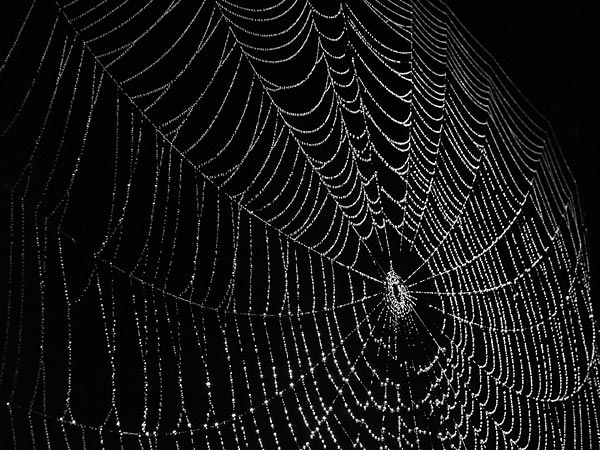Known spider silk is stronger than steel 5X, 3X tougher than Kevlar, but much thinner than a human hair, spider silk has long been a high-value textile materials - even higher than the silk produced by silkworms.
Nevertheless breed of spider is a challenge because the spider has a tendency cannibalism. The techno mania can imagine what would happen if there is a lot of spiders placed in the same place. What is happening instead of them more and more but less precisely because they are busy killing each other. Because of that breed of spider is not an option. The scientists tried to find another solution.
Although there are a group of scientists who developed the hybrid goat-spiders that can produce transgenic sususutera to then be processed to produce silk in large numbers, scientists now call for help from a creature much smaller (and perhaps less controversial): Escherichia coli , yes indeed, the bacteria can be found in our stomachs.

Sang Yup Lee of the Korea Advanced Institute of Science and Technology, along with Young Hwan Park of Seoul National University and David Kaplan of Tufts University, alter E. coli be a substitute for the spider silk genes by chemically uniting and putting it in the microbes. Once it produced silk, silk protein is soluble in water is converted into fiber is not soluble in water by spinning, like a spider. After cultivation of spider silk proteins for mass-production hybrid, KAIST team then purify it and spin the silk fibers.
The result according to the researchers is very difficult to distinguish from spider silk that is original, although the process is still much to be manufactured in a factory.
The implications of this discovery is enormous. Silk mass produced could provide wider application in the field of textiles, industrial machinery, photonic and optical, nanotechnology and medicine. This technique can also be used to produce silk-like biomaterials such as elastin, collagen, resilin.






No comments:
Post a Comment